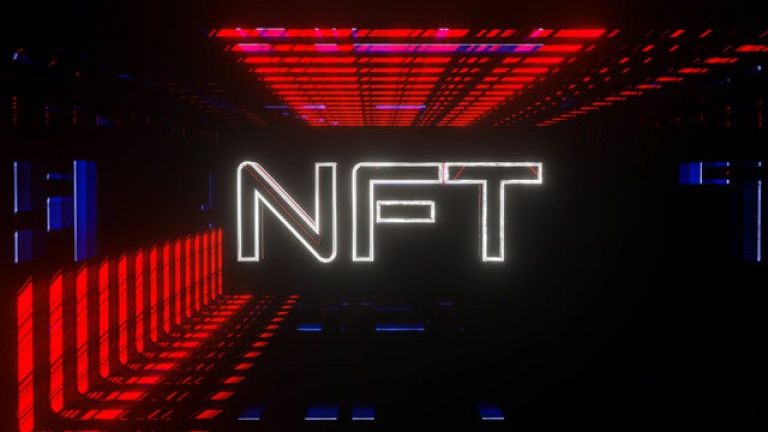In the ever-evolving landscape of blockchain technology, Non-Fungible Tokens (NFTs) have emerged as a game-changer. NFTs are unique digital assets that represent ownership of one-of-a-kind items, whether they're digital art, virtual real estate, collectibles, or more. These tokens have transformed the way we perceive and trade digital ownership, sparking an NFT revolution that shows no signs of slowing down. If you've ever dreamed of creating your own NFT marketplace, this blog is your comprehensive guide, taking you from the initial concept to turning that vision into a reality.
Understanding the NFT Marketplace
Before diving into the development essentials, let's establish a clear understanding of what an NFT marketplace is and why it's become a focal point of the blockchain world.
An NFT marketplace is an online platform where users can buy, sell, and trade NFTs. These marketplaces enable creators to mint NFTs, artists to showcase their digital artwork, collectors to acquire unique digital assets, and investors to speculate on the value of digital collectibles.
The Growth of NFTs
NFTs have witnessed explosive growth, with digital art pieces selling for millions of dollars, virtual lands being snapped up in virtual worlds, and unique in-game items becoming highly sought after. This rise in popularity has been a driving force behind the surge in NFT marketplace development.
Now, let's explore the essentials of NFT marketplace development.
Development Essentials
1. Concept and Niche
To embark on the journey of creating an NFT marketplace, you need a clear concept. Determine your niche - the specific type of NFTs that your platform will focus on. Will it be art, gaming, virtual real estate, or something entirely unique? Your concept will shape your marketplace's identity and user base.
2. Legal and Regulatory Considerations
Navigating the legal landscape is crucial. Consult with legal experts to ensure your platform complies with relevant regulations, intellectual property rights, and tax implications. Legal considerations will vary depending on your location and the nature of your NFT marketplace.
3. Choose the Right Blockchain
Selecting the appropriate blockchain network is a critical decision. Ethereum is the most common choice for NFTs, but other options like Binance Smart Chain, Flow, and more are available. The blockchain you choose should align with your project's goals, scalability needs, and budget.
4. Development Team and Technology Stack
A skilled development team is essential. Your team will be responsible for building the front-end, back-end, and the smart contracts that underpin your platform. The technology stack you choose should include languages like Solidity (for Ethereum), web development frameworks, and tools for secure and efficient development.
5. Smart Contract Development
Smart contracts are at the core of your NFT marketplace. These self-executing contracts define how NFTs are created, transferred, and traded. Properly auditing and testing your smart contracts is essential to prevent vulnerabilities and ensure security.
6. User-Friendly Interface
Creating an intuitive and user-friendly interface is crucial for attracting and retaining users. Your front-end should provide a seamless experience for users to browse, buy, and sell NFTs. Incorporate features like search and filter options, user profiles, and secure wallet connections.
7. Wallet Integration
Digital wallets are vital for users to manage and store their NFTs. Integrate popular wallets compatible with your chosen blockchain network, such as MetaMask for Ethereum-based NFTs. This integration ensures secure and efficient transactions.
8. Payment Gateway
An NFT marketplace requires a payment gateway supporting cryptocurrency transactions. Consider accepting widely used cryptocurrencies like Ether (ETH) or Binance Coin (BNB). Ensure that your payment system is secure and user-friendly.
9. Minting and Listing Features
To empower creators and artists, provide tools for minting and listing NFTs on your platform. These features enable users to create and sell their NFTs. Consider customizable options for minting, such as setting royalties for secondary sales.
10. Security Measures
Security is paramount for an NFT marketplace. Implement robust measures to protect user data, prevent fraud, and secure NFT transactions. Regular security audits and updates are essential to safeguard the platform and user assets.
11. Marketing and Community Building
After launching your NFT marketplace, marketing and community building are essential. Utilize social media, email marketing, partnerships, and other strategies to increase your platform's visibility and reputation. Building an engaged community is a valuable asset.
12. Support and Maintenance
Provide excellent customer support and regularly update your platform to maintain a responsive and evolving marketplace. Act on user feedback and make improvements to enhance the user experience. Continual support and maintenance are key to long-term success.
Challenges and Considerations
While developing an NFT marketplace is an exciting endeavor, it comes with its unique challenges and considerations:
-
Competition: The NFT marketplace space is increasingly competitive. To stand out, focus on a unique niche and an exceptional user experience.
-
Regulatory Environment: Stay informed about evolving regulations related to cryptocurrencies and NFTs, as they can impact your business.
-
Scaling: As your platform grows, scalability becomes crucial. Ensure that your chosen blockchain can handle increased traffic and transactions.
-
User Education: Many users are still new to NFTs and blockchain technology. Consider providing educational resources to help users navigate your platform effectively.
-
Sustainability: The environmental impact of blockchain networks, particularly Ethereum, is a concern for some users. Consider eco-friendly alternatives if sustainability is a priority for your project.
Conclusion
From concept to reality, NFT marketplace development is an exciting journey filled with opportunities and challenges. With the right concept, a skilled team, and careful attention to legal, technical, and user experience aspects, you can transform your vision into a thriving NFT marketplace.
As the NFT ecosystem continues to evolve, it's important to stay attuned to market trends, user preferences, and emerging technologies. NFT marketplaces are not only about buying and selling unique digital assets but also about fostering creativity and innovation in the digital world. As you embark on this journey, remember that building an NFT marketplace is not just a project; it's a commitment to transforming the digital ownership landscape and offering users a gateway to their unique digital treasures.


No comments yet